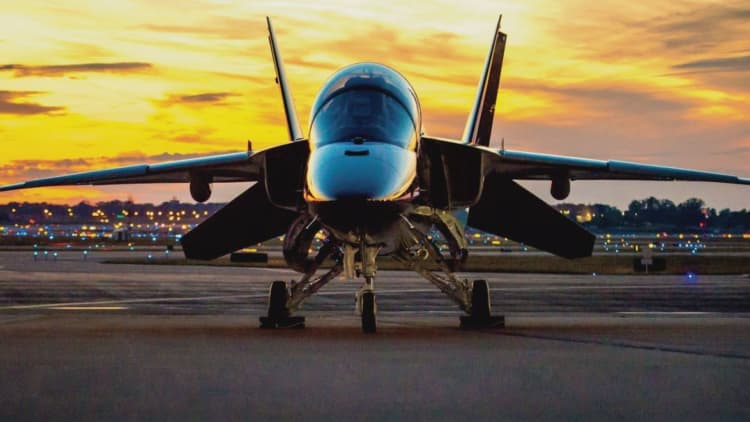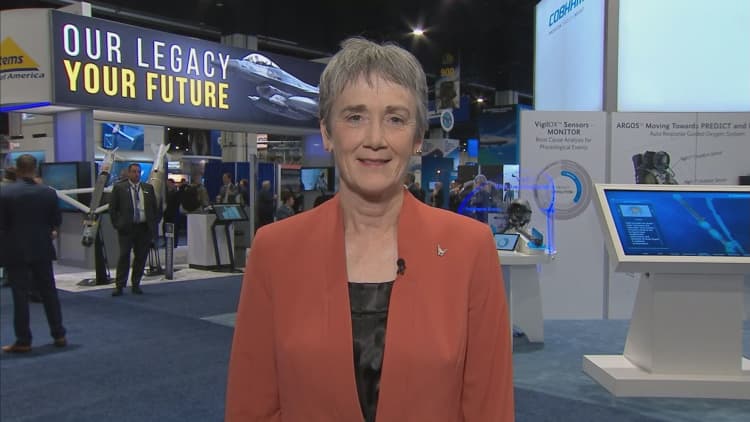
WASHINGTON — The U.S. Air Force has selected Boeing to build its next training aircraft, a long-awaited Pentagon contract worth $9.2 billion.
Boeing, which partnered with Swedish aerospace firm Saab, was awarded an initial $813 million for engineering and manufacturing development by the Air Force on Thursday. The service currently plans to buy 351 jets with full operational capability by 2034. The original service cost estimate was $19.7 billion, according to the award announcement.
Boeing's trainer aircraft will replace the Air Force's aging T-38 trainers that have been in the U.S. military's portfolio since the 1960s.
The multi-billion dollar contract comes as the Air Force moves to modernize its fleet of bombers, fighters, tankers as well as nuclear intercontinental ballistic missiles.
"It is not clear that the Air Force will have sufficient funding to support all of these different aircraft programs at the same time," Todd Harrison, a senior fellow and director of the defense budget analysis at the Center for Strategic and International Studies, told CNBC prior to the contract announcement.
"The budget situation is even more complicated now that the Air Force has announced that it wants to grow in size by nearly 25 percent," he added.

Lockheed Martin was also in the running for the lucrative contract. It has been dubbed as one of the largest aircraft competitions.
Lockheed Martin partnered with Korea Aerospace Industries, or KAI, to offer the T-50A jet for the U.S. Air Force's trainer competition. The plane is a version of KAI's T-50, which is used in South Korea as well as several other U.S. partner nations. In June, revelations that the South Korean aviation firm paid President Donald Trump's personal lawyer, Michael Cohen emerged.
KAI paid $150,000 to Cohen's company, Essential Consultants, for "legal consulting concerning accounting standards on production costs," a KAI representative told Reuters. Cohen's work with KAI lasted less than six months and ended in November.
KAI did not respond to multiple requests for comment from CNBC.
When asked if KAI's dealings with Cohen or a corruption investigation involving the Korean firm's leadership would impact the U.S. Air Force's selection, Lt. Gen. Arnold Bunch said in June that the service was "letting the contract process play out."
"We are working through all the legal and letting them do all that work. We'll just let that process play through the source selection," Bunch, the Air Force's top acquisition officer, told reporters at the time.
Lockheed Martin, the Pentagon's top weapons supplier, told CNBC that nothing had changed with their bid for the Air Force's trainer award.
"We had no knowledge of a business relationship between Korea Aerospace Industries and Mr. Cohen, and are not aware of any connection that it may have to the U.S. Air Force Advanced Pilot Training competition," Lockheed told CNBC in a previous statement.


